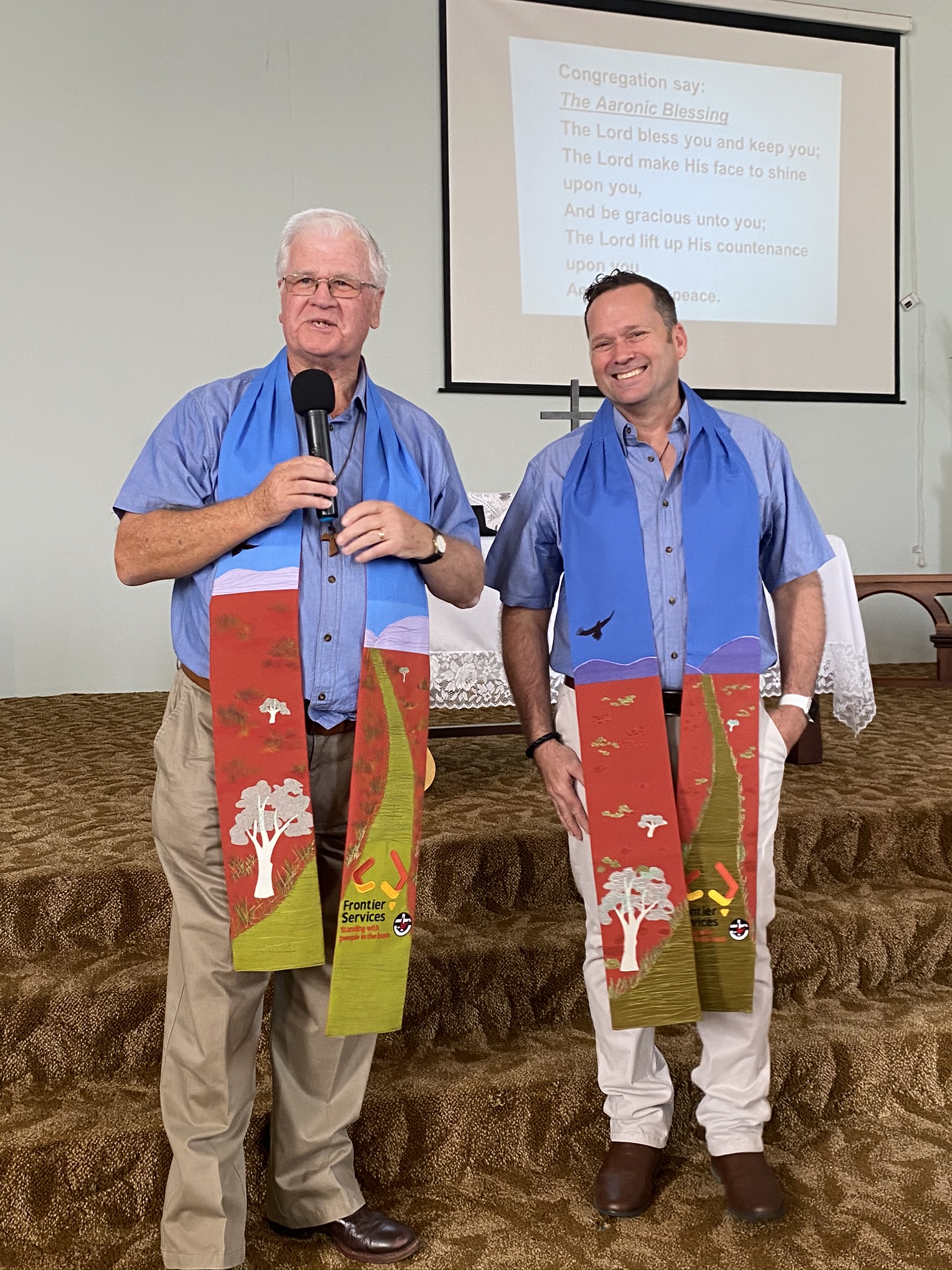
October 20, 2020 In Frontier News Web By Frontier Services
A ministry among miners
During Rev Lindsay Ginn’s induction, we were joined by another of our Bush Chaplains, Rev John Dihm from our Pilbara Remote Area. We spoke with John about what it means to be a Bush Chaplain with a ministry among miners, and in this article share with you some highlights from our conversation.
John, what does it mean to be a Bush Chaplain?
Well, it means a lot of things to a lot of people. You’re a minister of presence, a minister of listening. You’re a comfort to some and for others it means someone walking beside them, just being there. For FIFO workers on site, it’s a welcome presence. They have someone to talk to, and someone who’s their friend.
Based in the small mining community of Tom Price, John works closely with fly-in-fly-out workers. The usual hardships, anxiety, dangers and isolation of living in a remote location are only part of the struggle for people who work in FIFO. Many in John’s community also deal with being separated from their partners and children for long periods of time, and the volatility of the industry means they constantly feel the stress of job security.
Because of the pressure FIFO careers place on workers and their families, John is regularly on-site to give talks that equip them with the knowledge and skills to look after their mental health. He is also on-call for them, so if they fall into despair they know they can reach out to John.
“They share the most personal stories with you,” John said. “Like the worker whose son is going in for a brain tumour operation and how he’s worried for him. Or another who told me that he and his wife planned to go around Australia when he finished FIFO, but now she’s got cancer he’s thinking about early retirement.”
John told us that being a Bush Chaplain is about giving people, who live in isolation from those they love, an outlet to confide their worries and fears.
What are the joys of being a Bush Chaplain?
Performing marriages on the stations, then going back to baptise their children. It’s being totally involved with the families – even receiving Christmas cards from them with little ‘kisses’ from the children. It’s also seeing people grow in their roles, like the FIFO workers on the construction projects.
John has been a Frontier Services Bush Chaplain for 17 years. In that time, he’s touched the lives of hundreds of families. He spoke of one in particular from outback South Australia when he was Bush Chaplain there.
The family was struck by two separate tragedies. The first was losing an infant to SIDS. The second, years later, a plane crash that killed the husband during a routine flight to muster cattle. Each time, John provided practical and pastoral care to Nina and her young family, and connected them to vital services to bring them back on their feet. That was years ago, but he said he’s still connected with them.
“My favourite part is being with the people.”
“Only the other day, I sent Nina a birthday greeting,” John said. “The next thing I know she gives me a call and we were on the phone for half an hour.”
“I also remember seeing them in Sydney a couple of years ago and thinking how much those kids had grown,” John recalled. “But they still called me ‘poppa’! I will never forget what we’d been through together.”
Emerging challenges in the Pilbara
Today John continues to work with FIFO workers in Tom Price, families on remote stations and Aboriginal communities. But he faces a new challenge as restrictions have been placed on visiting communities and mine sites, in an effort to reduce the spread of COVID-19.
Sadly, the annual cultural event The Karijini Experience (April 14-18) was cancelled, as the safety and wellbeing of Elders, traditional owners and guests was paramount.
John tells us that he stays connected with the people of the Pilbara by phone and Skype. We hope and pray that the community can reopen soon.
This article is adapted from the May 2020 edition of Frontier News.


